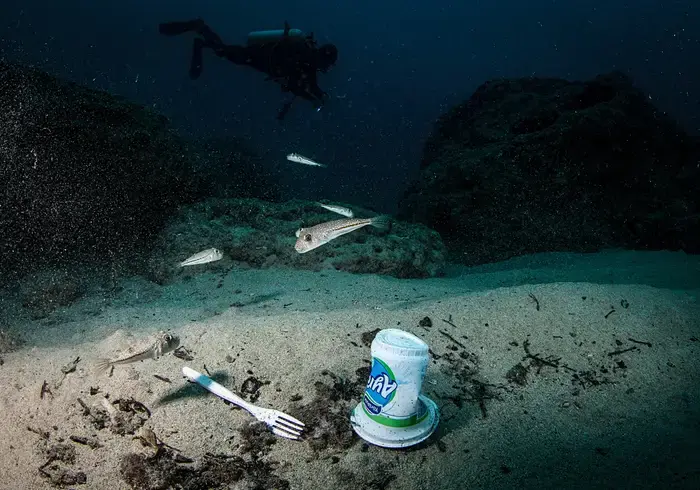Microplastics Science - from an ECOP Canada Microplastic Ambassador
- Kara Guloien
- Jun 3
- 3 min read
Last year, Jeanine and I set out to raise awareness about microplastics and citizen science for microplastics at community events around British Columbia, in partnership with ECOP Canada and Ocean Diagnostics. This ambassadorship was part of a Canada-wide initiative training young leaders in microplastics research and outreach. Throughout this program, we engaged in shoreline cleanups, surveyed for microplastics in the environment, and analyzed our samples using the Saturna - an innovative sample processing system for microplastic detection.
This experience left us feeling empowered to take on the challenges presented by microplastics in the environment - we want to leave others feeling empowered too.
What Are Microplastics, and Why Do They Matter?
Plastic pollution is one of the most pressing environmental threats facing our planet today. Here in British Columbia, we're witnessing firsthand how plastics—from bottles to microfibers—are infiltrating our coastlines, rivers, and ecosystems.
Every year, an estimated 14 million metric tonnes of plastic enter the ocean, with a vast majority flowing from rivers into marine environments. Once there, plastics can travel great distances, wash up on remote shorelines, collect in ocean gyres, or sink to the seafloor—causing long-term environmental harm.
Microplastics are plastic particles smaller than 5 mm. These tiny fragments come from the breakdown of larger items or are manufactured at this size (e.g. microbeads, synthetic fibers). They pose unique dangers because they are nearly impossible to remove and spread across every part of our environment—our air, soil, waterways, and even our bodies.
Here’s why that matters:
Human Health Risks: Microplastics have been detected in human lungs, blood, and organs. Studies suggest they can trigger inflammation, hormonal disruption, and immune responses.
Ecosystem Disruption: In marine habitats, microplastics can leach toxic chemicals or carry harmful bacteria, disrupting the food chain and biodiversity.
Climate Impact: Plastic production is fossil fuel-intensive. From manufacture to breakdown, plastics emit greenhouse gases and interfere with the ocean’s ability to store carbon—an important buffer against climate change.
Why Monitoring and Local Action Matters
While researchers are still uncovering the full impact of microplastics on people, wildlife, and climate systems, we know enough to act. Community science and environmental monitoring are essential tools in this fight.
At Plastic Free BC, we know local knowledge and community action are central to driving change. Here’s how monitoring helps:
Data Collection: Gathering microplastics data in BC waters helps identify pollution hotspots and evaluate the success of plastic reduction policies.
Empowerment: Citizen science efforts not only clean up our environment but also build grassroots momentum for political and corporate accountability.
What You Can Do: Take Local Action in BC
Reducing plastic pollution starts at home, in our communities, and through policy change. Here’s how you can help:
🌱 Say No to Plastic-Heavy Products: Avoid single-use items, overpackaged goods, and fast fashion. Support businesses in BC that prioritize reusable or compostable alternatives.
🧪 Join Local Citizen Science Monitoring Programs: Whether it’s a shoreline cleanup or microplastic survey, your data contributes to real change.
📣 Advocate for Policy Change: Push for stronger provincial and federal regulations on plastic production, extended producer responsibility, and bans on unnecessary plastics.
Looking Ahead: Systemic Change Is Possible
Plastic pollution is not an isolated issue—it’s intertwined with climate change, extractive industries like deep-sea mining, and unsustainable consumption patterns. If we don’t change course, plastic production is projected to triple by 2060.
The Global Plastics Treaty, currently in negotiation, is a chance to move toward a world free from plastic pollution by 2040. But for it to succeed, we need community voices demanding accountability and bold policy changes.
Let’s Keep BC Plastic Free
From coast to community, British Columbians are stepping up to fight plastic pollution. By supporting education, science, and policy change, we can protect our ecosystems for generations to come.










Comments